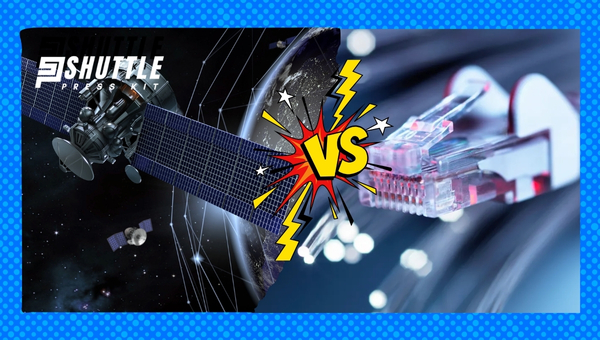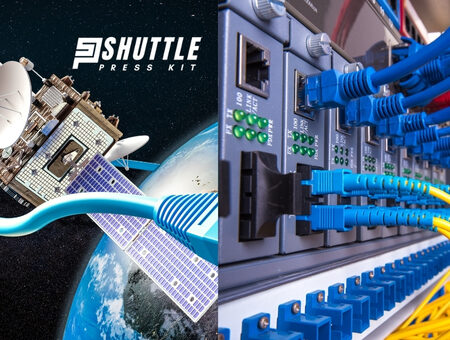When it comes to connecting online, not all internet services are created equal. That’s where the age-old debate of Satellite Internet vs. Cable Internet comes into play—each offering its own sets of pros and cons depending on where you live and what your web needs are.
If you’re on the fence about which one to pick, you’ve landed in the perfect spot! Let’s dive into this comparison and see which service might come out on top for you.
Choosing between satellite internet and cable internet hinges on a few key factors—like your location, internet speed demands, and budget. Generally speaking, cable internet tends to offer faster speeds at a lower price point but is restricted by geographical availability.
On the other hand, satellite internet can reach virtually anywhere with a clear view of the sky, making it an ideal choice for rural or remote areas where cable doesn’t reach, even if it might mean dealing with slightly slower speeds or higher costs.
| Feature | Satellite Internet | Cable Internet |
|---|---|---|
| Availability | Available almost anywhere, including rural areas. | Limited to areas with cable infrastructure. |
| Installation | Requires a satellite dish and clear view of sky. | Requires a physical cable connection. |
| Speeds | Typically slower; usually up to 100 Mbps. | Generally faster; often up to 1 Gbps or more. |
| Latency | Higher latency (600-1200 ms) due to longer distance signals travel. | Lower latency (10-50 ms), better for real-time applications like gaming. |
| Reliability | Can be affected by weather conditions (rain, snow). | Less impact from weather, but can have issues if cable lines are damaged. |
| Cost | Can be more expensive due to equipment and installation costs. | Often bundled with other services like TV, which might reduce overall cost. |
Satellite Internet vs Cable Internet – A Quick Overview
Satellite internet and cable internet represent two distinct types of broadband services, each with unique characteristics and benefits. Satellite internet primarily serves users in remote and rural areas where traditional wired connections are not feasible.

Utilizing satellites in geostationary orbit, this service provides global coverage but often experiences higher latency due to the long distance data must travel.
On the other hand, cable internet employs coaxial or fiber-optic cables connected directly to homes or businesses, offering generally faster speeds and lower latency. This makes it a preferable option for urban residents who require robust, consistent service for streaming, gaming, and downloading.
Speed Comparison
When it comes to speed, cable internet generally holds a clear advantage over satellite internet. Cable networks can easily provide speeds up to 1 Gbps, depending on the provider and service package. These high-speed options are ideal for bandwidth-intensive activities like high-definition video streaming, online gaming, and large file downloads.
In contrast, satellite internet speeds are typically slower due to the inherent signal delays caused by the long distance between the satellite and users on Earth. The available speeds might range up to 100 Mbps under optimal conditions but often fall short compared to cable.
Price Variability: Satellite Internet vs Cable Internet
Pricing between satellite and cable internet can vary considerably based on the provider, package options, and geographic location. Generally, starter packages for satellite internet may be competitively priced similar to low-tier cable options; however, costs might climb steeply with higher data caps or faster speed offerings.
Additionally, satellite internet often imposes strict data allowances with steep charges for overages which can significantly increase monthly expenses for heavy users. Conversely, many cable providers offer various bundled services that may reduce overall costs while providing greater value through enhancements such as unlimited data plans.
Accessibility
Accessibility is one area where satellite internet shines over its competitors. Designed to cover wide areas including rural or rugged terrains where laying cables is either impractical or too costly, satellites can connect users virtually anywhere on Earth with a clear view of the sky toward the equator.
This makes it an invaluable resource for people living in remote locations without access to traditional broadband infrastructures like DSL or fiber optics that form the backbones of most urban communication networks — thus limiting cable’s reach primarily to developed metropolitan areas.
Also Read: Starlink Roof Mount Installation Guide: The Ultimate How-To
Reliability Factors
In terms of reliability, cable connections generally offer superior stability compared with their satellite counterparts. The physical connections utilized by cable are less susceptible to external interferences such as inclement weather conditions which can drastically impact a satellite’s connectivity.
A major downside during critical weather scenarios or simply bad weather days when dependable service is essential. Stability aside from natural disturbances remains better in cabled networks given they do not require signals traveling immense distances back and forth from earth-orbiting satellites multiple times before reaching consumers.
Also Read: Starlink Volcano Mount Guide: Easy DIY Installation Tips
Frequently Asked Questions
What is the main difference between Satellite Internet and Cable Internet?
Satellite Internet uses signals from space to get you online, while Cable uses physical wires.
Can I get Satellite Internet if I live in a remote area?
Yes, Satellite Internet is especially good for remote areas where Cable might not reach.
Is Cable Internet faster than Satellite?
Generally, Cable Internet offers higher speeds than Satellite, making it suitable for heavy usage.
Do weather conditions affect Satellite and Cable Internet?
Yes, Satellite Internet may be more sensitive to bad weather, while Cable is less affected.
Conclusion
In the world of high-speed internet access, choosing between satellite and cable internet ultimately depends on your specific needs, location, and budget. Satellite internet offers widespread coverage, making it an excellent choice for rural or remote areas where cable infrastructure is sparse.
On the other hand, cable internet often provides faster and more reliable service in urban or suburban environments, supporting higher data usage without the latency issues associated with satellite connections.
